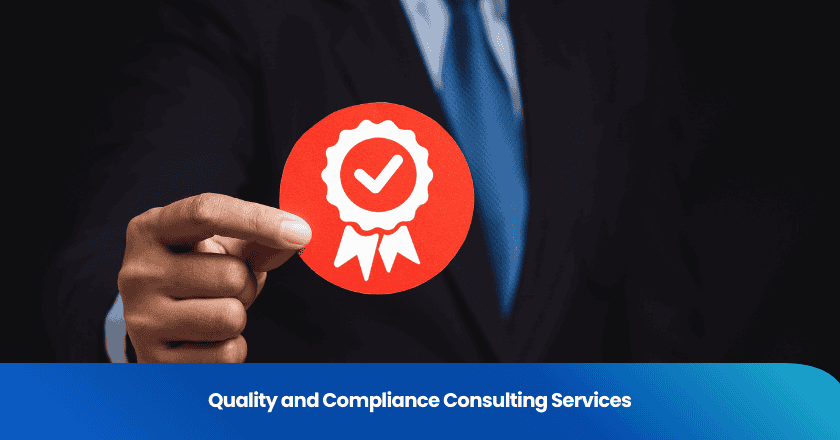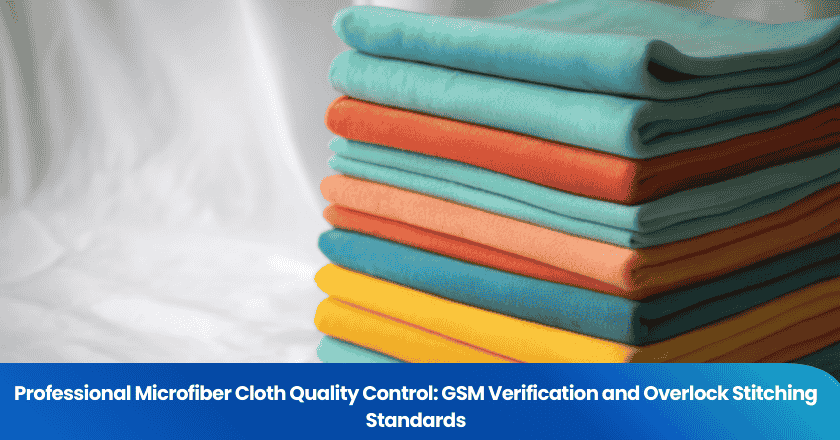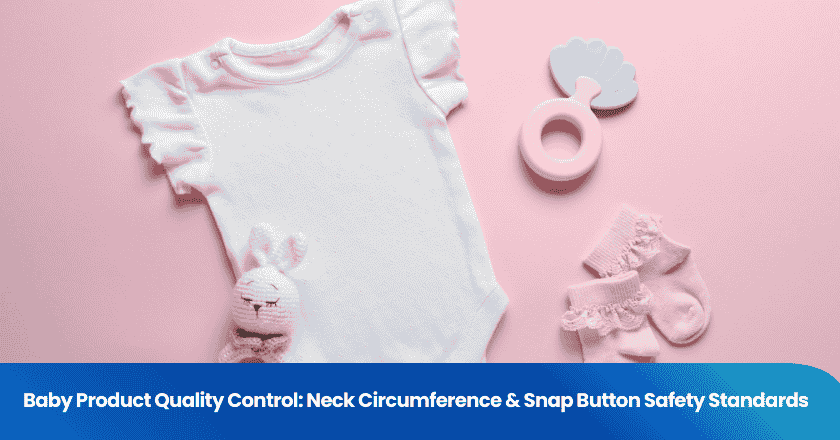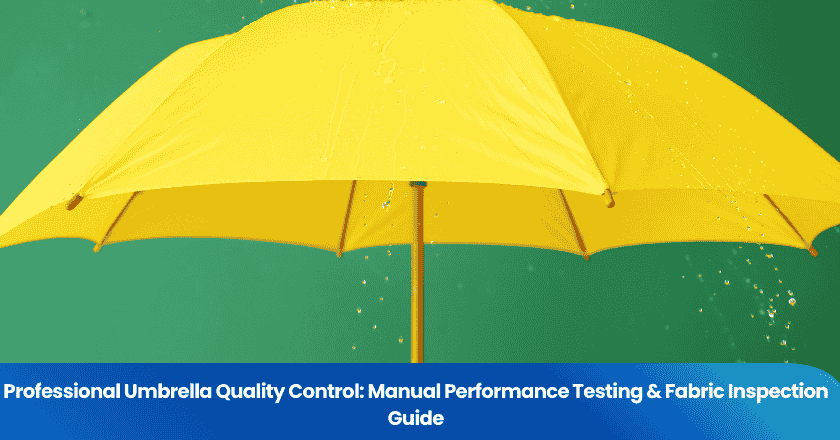
You face constant pressure to meet strict standards in regulated industries. Quality and compliance consulting services guide you through complex requirements, from Good Manufacturing Practices (GMP) to food safety laws and medical device regulations.
| Industry | Regulatory Requirement | Description |
|---|---|---|
| Pharmaceuticals | Good Manufacturing Practices (GMP) | Guidelines ensuring products are safe, effective, and high-quality. |
| Medical Devices | Title 21 of the Code of Federal Regulations | Specific rules for development, testing, and marketing of medical devices. |
| Food | Various local and international food safety laws | Regulations ensuring food safety and quality across different jurisdictions. |
Non-compliance can bring financial damage, reputational harm, legal issues, and operational disruptions. Expert guidance helps you avoid these risks and build stronger operations.
Key Takeaways
- Quality and compliance consulting services help organizations navigate complex regulations, ensuring adherence to standards like GMP and FDA requirements.
- Engaging consultants leads to improved operational efficiency, reduced compliance risks, and enhanced product quality, ultimately saving costs.
- Tailored training programs empower employees with the knowledge to maintain compliance, fostering a culture of quality within the organization.
- Proactive risk management strategies help identify potential issues early, allowing businesses to address them before they escalate into costly problems.
- Choosing the right consultant is crucial; look for expertise, comprehensive services, and a collaborative approach to ensure long-term success.
Quality and Compliance Consulting Services
What They Are
You rely on quality and compliance consulting services to navigate the complex landscape of regulatory requirements. These services help you build and maintain systems that meet the highest standards for safety, quality, and operational excellence. Whether you operate in pharmaceuticals, medical devices, food production, or other regulated industries, you face a range of frameworks such as cGMP, ISO, FDA, and BIS.
A robust Quality Management System (QMS) forms the backbone of compliance. It ensures your products and processes align with ISO 13485, cGMP, and FDA standards. The FDA's Quality System Regulation (QSR) closely aligns with ISO 13485:2016, outlining cGMP requirements for medical devices.
Here's how these frameworks shape the scope of quality and compliance consulting services:
| Regulatory Framework | Description | Key Services Offered |
|---|---|---|
| GMP | Guidelines for consistent product quality in pharmaceuticals, cosmetics, and food. | Compliance audits, documentation support, training programs. |
| ISO | Standards across various industries focusing on quality, safety, and efficiency. | Policy development, gap analysis, certification support. |
| FDA | Regulations for food, drugs, and medical devices in the U.S. | Regulatory roadmap design, mock audits, compliance tracking. |
| BIS | Ensures product safety and quality in India. | Vendor compliance programs, documentation support, market access strategies. |
Quality and compliance consulting services address holistic compliance needs. You receive support in designing strategies that optimize resources across multiple regulations. These services also focus on data integrity, IT quality assurance, and embedding quality into every stage of production.
Tip: Embedding quality into your processes not only ensures compliance but also drives continuous improvement and customer satisfaction.
Why They Matter
You operate in an environment where regulatory expectations constantly evolve. Quality and compliance consulting services help you stay ahead by aligning your processes with current industry standards. These services provide expertise in compliance strategies, conduct thorough cGMP audits, and offer tailored solutions for your unique challenges.
Consultants deliver specialized training programs, ensuring your staff understands and applies compliance standards. Proactive risk management becomes possible, allowing you to identify and address potential issues before they escalate. Early intervention helps you avoid costly penalties and builds trust with regulators and stakeholders.
The main objectives of quality and compliance consulting services include:
- Understanding your organization’s overall compliance requirements.
- Designing compliance approaches that work across various regulations.
- Ensuring the accuracy and reliability of regulated data.
- Meeting industry-specific quality assurance expectations for IT systems.
- Embedding quality management systems for continuous improvement.
Organizations that engage these services often see measurable outcomes. You may experience a reduction in testing time, an increase in detection rates for issues, and an overall improvement in product or service quality. Enhanced productivity and fewer post-release defects become achievable goals.
Long-term, you build a culture of quality and achieve sustainable compliance. This positions your organization for ongoing success in regulated industries. By investing in quality and compliance consulting services, you protect your operations, enhance your reputation, and ensure your business remains resilient in a competitive market.
Consulting Services
Audits and Assessments
You gain valuable insights into your organization's strengths and weaknesses through comprehensive audits and assessments. Quality and compliance consulting services offer a range of evaluations to help you meet regulatory expectations and drive improvement. Common types include:
- Compliance audits: Check your adherence to industry regulations and standards.
- Performance audits: Measure the effectiveness of your quality management systems.
- Supplier audits: Evaluate third-party suppliers to ensure they meet your quality requirements.
- Risk assessments: Identify potential threats to your quality objectives.
- Supplier assessments: Review supplier performance over time for consistency.
- Capability assessments: Determine if your internal processes can achieve required quality standards.
These assessments help you identify gaps and prioritize corrective actions.
Compliance Solutions
You face a complex regulatory landscape. Consulting services provide tailored compliance solutions to address your unique needs. Key components include:
- Regulatory compliance solutions: Frameworks and tools to help you follow laws and reduce legal risks.
- Data privacy compliance solutions: Manage personal data securely, including encryption and consent management.
- IT compliance solutions: Strengthen your data security and IT protocols.
- Environmental compliance solutions: Support sustainability and eco-friendly practices.
- Financial compliance solutions: Ensure accurate reporting and adherence to financial regulations.
These solutions help you build a strong foundation for ongoing compliance.
Training Programs
You empower your team with targeted training programs. Consultants design modules that address specific regulations and your internal policies. Training often includes:
- Customized modules with real-life examples for better retention.
- Interactive scenarios and role-playing to practice compliance decisions.
- Engaging formats using multimedia to suit different learning styles.
- Real-time feedback to reinforce understanding and correct errors.
Effective training increases employee confidence and reduces compliance risks.
Inspection Support
You prepare for regulatory inspections with expert support. Consultants help you organize documentation, conduct mock inspections, and address potential findings. This guidance ensures you approach inspections with confidence and meet regulatory expectations.
Risk Management
Identifying Risks
You face a wide range of risks in regulated industries. Quality and compliance consultants help you spot these challenges early, so you can take action before they escalate. Common risks include:
- Navigating complex regulatory requirements
- Maintaining documentation and record-keeping
- Preparing for audits and inspections
- Ensuring product quality and safety
- Managing environmental compliance
- Process failures
- Workplace health and safety
- Adapting to direct-to-consumer sales compliance demands
Consultants use several methods to identify these risks within your organization:
| Method | Description |
|---|---|
| Initial Assessments | Uncover vulnerabilities in policies, procedures, and operations, allowing you to address risks early. |
| Work with Compliance Advisors | Tailor actionable strategies to address current gaps and anticipate future risks, providing industry-specific insights. |
| Leverage Third-Party Experience | Offer unbiased perspectives and thorough assessments to enhance compliance frameworks and address hidden risks. |
| Conduct Global Risk Assessments | Identify specific risks for businesses operating internationally, enabling regulatory compliance across borders. |
By using these approaches, you gain a clear understanding of your risk landscape and can prioritize your next steps.
Preventive Strategies
You can reduce compliance risks by adopting proven preventive strategies. Consultants recommend the following approaches:
| Strategy | Description |
|---|---|
| Employee Training | Regular training programs ensure employees are updated on quality protocols and compliance procedures. |
| Regular Audits | Internal audits identify discrepancies between practices and regulatory requirements for correction. |
| Corrective and Preventive Actions (CAPA) | CAPA systems investigate and address root causes of non-conformities to prevent recurrence. |
When you implement these strategies, you create a proactive culture that addresses issues before they become violations. Continuous monitoring tools help you spot potential compliance problems early, so you can manage risks effectively. Organizations that track regulatory changes and invest in employee training see a significant drop in compliance violations. Many businesses report increased confidence in compliance decision-making after adopting these proactive measures.
Tip: Proactive risk management not only protects your organization but also builds trust with regulators and customers.
Benefits
Cost Savings
You can achieve significant cost savings by working with quality and compliance consultants. These experts help you streamline your processes, reduce waste, and optimize resource allocation. When you identify inefficiencies early, you avoid costly mistakes and penalties. Consultants guide you in setting up systems that prevent non-compliance, which means fewer fines and less downtime. You also benefit from improved resource management, which boosts your profitability.
Tip: Investing in compliance consulting often leads to long-term savings that outweigh the initial costs.
Reputation
Your reputation stands as one of your most valuable assets. Quality and compliance consulting services help you protect and enhance it. By ensuring you meet industry standards, you avoid fines and negative publicity. Consultants help you build trust with stakeholders and customers by creating a culture of quality and readiness for audits. The following table highlights how consulting services contribute to a stronger reputation:
| Contribution Aspect | Explanation |
|---|---|
| Ensuring Regulatory Compliance | Helps you meet industry standards, avoiding fines and reputational damage. |
| Improving Process Efficiency | Streamlines your operations, reducing waste and boosting productivity, which enhances your reputation. |
| Custom Solutions for Your Industry | Provides tailored strategies that address your specific compliance challenges, reinforcing trust. |
| Proactive Risk Management | Identifies vulnerabilities and implements preventative measures, safeguarding your reputation. |
| Training and Development | Cultivates a culture of quality, empowering your employees to uphold high standards. |
| Preparing for Audits | Ensures readiness for audits, minimizing disruptions and maintaining a positive image. |
| Achieving Long-Term Growth | Builds trust with stakeholders, leading to a stronger reputation and sustainable business growth. |
Operational Improvement
You see real operational improvements after engaging quality and compliance consultants. They help you assess your current processes, design standardized workflows, and implement changes smoothly. You gain tools for continuous monitoring and improvement, which keeps your organization compliant and efficient. The table below outlines the typical phases of operational improvement:
| Phase | Description |
|---|---|
| Assessment & Planning | Identify existing challenges and map out a strategic improvement plan. |
| Process Design & Standardization | Create standardized processes that meet FDA standards while boosting efficiency. |
| Implementation & Change Management | Deploy the improvement plan with clear timelines and deliverables, ensuring a smooth transition. |
| Continuous Monitoring & Improvement | Establish KPIs and provide tools for continuous tracking and adjustment for sustainable compliance. |
Benefits of Quality and Compliance Consulting Services
You gain a wide range of benefits from quality and compliance consulting services. These include enhanced business stability, access to specialized expertise, and improved customer satisfaction. Consultants help you identify areas for improvement and provide a clear roadmap for change. You also experience cost reduction and better resource optimization. Here are some key benefits:
- Greater business stability and informed decision-making
- Insights into improvement opportunities
- Access to industry expertise and best practices
- Streamlined processes and reduced costs
- Higher customer satisfaction and loyalty
Note: Quality and compliance consulting services support your long-term growth and help you build a resilient organization.
Getting Started
Choosing a Consultant
Selecting the right quality and compliance consultant sets the foundation for your success. You want a partner who understands your industry and brings proven expertise. Look for consultants who demonstrate:
- Expertise in regulatory frameworks such as CMMC, with a strong client base in your sector and relevant certifications.
- Comprehensive service offerings, including gap analyses, security implementation, audit preparation, and ongoing compliance monitoring.
- Excellent customer support, with clear communication, prompt responses, and regular updates.
- A collaborative approach, showing genuine care for your business’s long-term success and security.
- Efficiency in deploying advanced technology to meet compliance requirements.
- Auditors with a strong track record and integrity, who follow ethical guidelines and have experience in your field.
- Clarity on the scope of services, ensuring the consultant can address your specific needs, from risk assessments to compliance audits.
Tip: A consultant who aligns with your goals and values will help you build a lasting culture of compliance.
First Steps
You can start your quality and compliance journey with a structured approach. Follow these steps to lay a solid foundation:
1. Conduct a thorough risk assessment to evaluate your current compliance status and identify vulnerabilities.
2. Develop customized policies and documentation that guide your compliance efforts and clarify expectations.
3. Implement targeted training programs for different roles, ensuring everyone understands their responsibilities.
4. Establish ongoing support and verification processes to maintain effective compliance over time.
You may notice initial improvements within 30 to 90 days, especially in data quality and process monitoring. Many organizations report measurable business impacts within the first three months. Full deployment of comprehensive programs often takes 12 to 18 months, but most see a positive return on investment within 6 to 12 months.
Note: Taking these first steps with the right consultant accelerates your progress and helps you achieve sustainable compliance.
You gain a competitive edge when you invest in quality and compliance consulting services. These services help you maintain ongoing compliance and drive operational excellence.
| Methodology | Benefits |
|---|---|
| Rapid, data-driven assessment | Identifies inefficiencies and performance gaps |
| Process optimization and workflow redesign | Streamlines workflows and reduces waste |
| Quality system and compliance reinforcement | Strengthens compliance culture |
| Digital and AI-powered analytics | Enables real-time monitoring and better decisions |
| Change leadership and governance | Drives accountability and improvement |
You can take action by identifying regulations, conducting audits, and fostering a culture of compliance. Proactive compliance management helps you address issues early, reduce penalties, and build trust. Stay ahead—make compliance your advantage.
FAQ
What industries benefit most from quality and compliance consulting services?
You see the greatest impact in pharmaceuticals, medical devices, food production, and healthcare. These industries face strict regulations. Consulting services help you meet standards and avoid costly mistakes.
How do consultants help you prepare for regulatory inspections?
You receive guidance on organizing documents and conducting mock inspections. Consultants review your processes and help you address gaps. This preparation increases your confidence during real inspections.
What is the typical timeline for seeing results?
You often notice improvements within 30 to 90 days. Full program benefits may take 12 to 18 months. Early changes include better data quality and smoother processes.
Do you need ongoing consulting support?
You benefit from ongoing support. Regulations change often. Continuous consulting helps you stay compliant and adapt to new requirements.
How do training programs improve compliance?
You gain practical knowledge through targeted training. Interactive modules and real-life examples help your team understand and apply compliance rules. This reduces errors and builds a culture of quality.
Grow your business with TradeAider Service
Click the button below to directly enter the TradeAider Service System. The simple steps from booking and payment to receiving reports are easy to operate.





